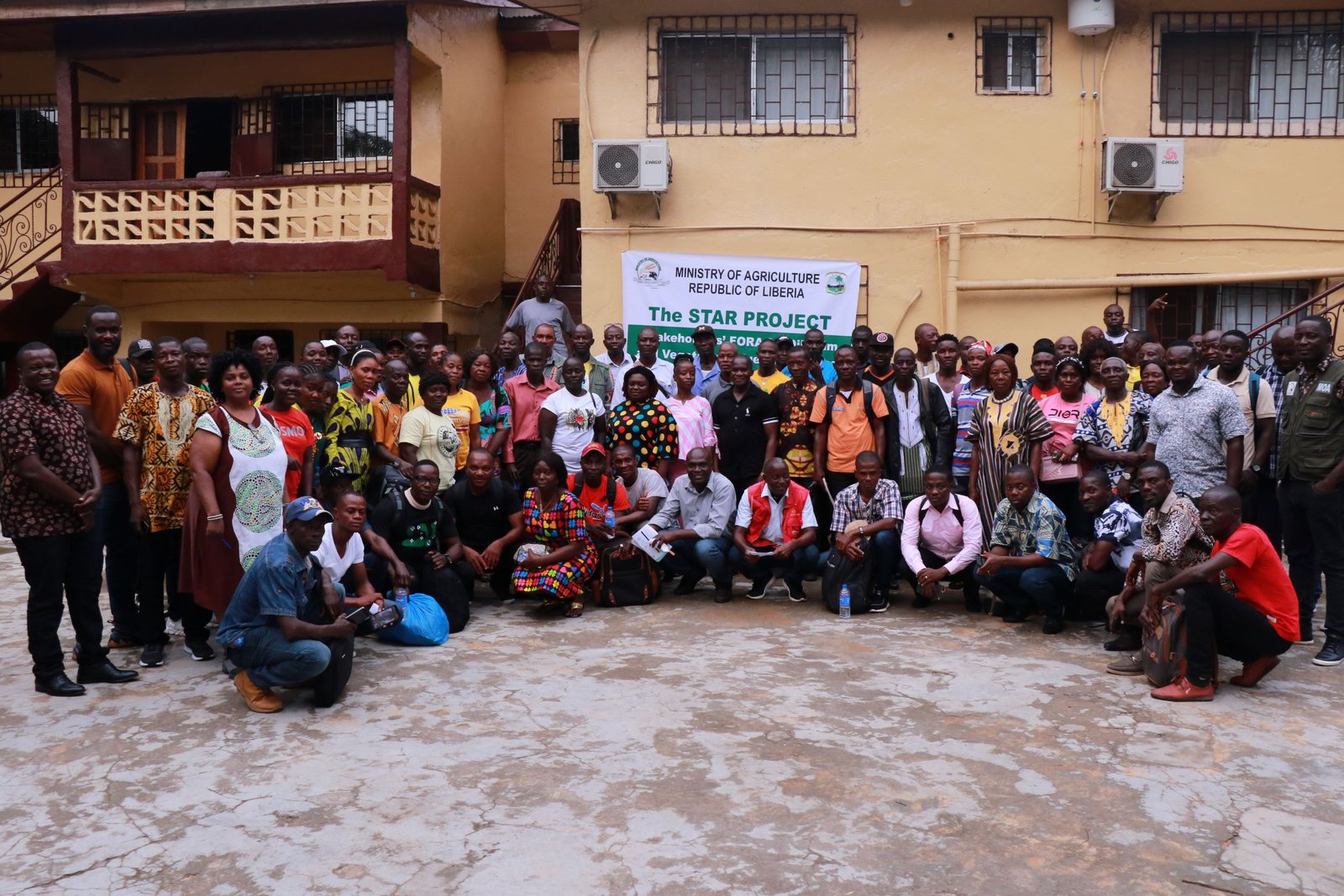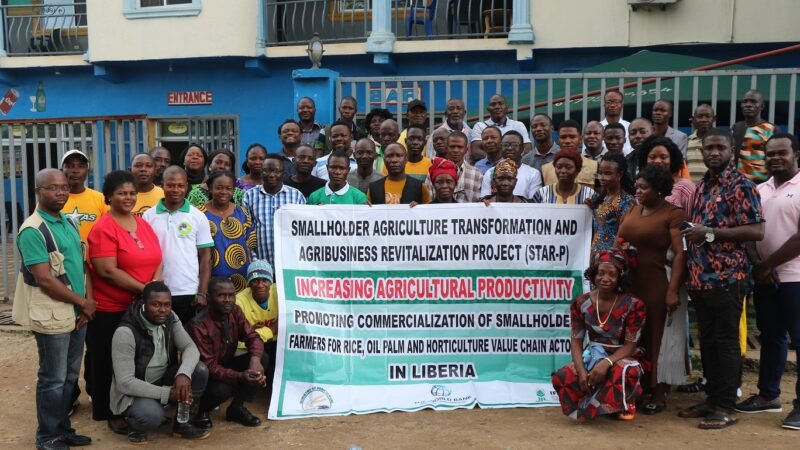Oil palm and vegetable stakeholders agree on climate-smart agriculture technologies to improve productivity

Recently, actors representing the oil palm industry, vegetable producers, and sellers association agreed to try on climate-smart agriculture technologies and best practices to curb losses resulting from poor agri-practices coupled with limited agri-technologies transferred and subsidies received.
The agreement is a result of a two-day forum intended to formulate a collaborative strategy among actors across the oil palm and vegetable sectors and the Ministry of Agriculture to improve productivity. The forum took place on October 18 and 19, 2022, and brought together more than 200 participants from across Liberia who are involved with the two value chains.
What has been said?
In Liberia, oil palm production is being carried out by small-scale farmers and concessions. The sector accounts for one-tenth of the employment of the country’s agriculture. However, support for small-scale oil palm farmers remains limited. While the vegetable sector is highly in demand as the country still imports most of its vegetable supply for the market.
What was said at the forum?
Operation Manager of the STAR project, Stephen Marvie said that over the next few years, farmers and other members of the vegetables and oil palm value chains are expected to benefit greatly from the project. He named the provision of matching grants, agronomic training in the three value chains, and market creation, among other things, as benefits lined up for the 38,000 beneficiaries that are targeted under the project.
“This forum is convened to inform you about the opportunities that exist at the ministry for smallholder farmers like yourselves and how you can benefit from them. This is also to provide you the opportunity to obtain basic knowledge on various important topics that relate to your farming ventures, and together we can agree on the best way that we can improve the work we do,” he said.
Marvie further revealed that the project is working to boost the production of the various value chains with the use of new and improved technologies.
“For our vegetable value chain, we are working to develop what we consider kitchen gardens. We are exploring all the possibilities for improving vegetable production in Liberia. We are making sure farmers can access better seeds and coaching and ensure that more farmers are knowledgeable about the right use of inputs,” he said.
The Ministry of Agriculture (MoA) organized the forum through its Smallholder Agriculture Transformation Revitalization and Agribusiness Project (STAR-P). The project is funded by the World Bank and IFAD. It seeks to develop the rice, oil palm, and vegetable value chains to demonstrate commercial viability.
The two-day forum educated the participants on several topics, including strengthening agribusiness in the vegetables and oil palm value chains, business development and compliance requirements, the importance of cooperative, and new agronomic practices in oil palm and vegetables others.
Participants also lauded the Ministry of Agriculture’s efforts to provide a platform for exchanging ideas and dialogue among oil palm, and vegetable value chain actors.
Sumo Mulbah, head of the Vegetable Traders Association, said that they welcome the project’s intervention to improve the vegetable sector. He also said that the vegetable sector is confronted with many challenges, and they hope the project will help change the sector.
“Vegetable is a profitable venture, but mass production and marketing are still challenges faced by members of our organization. We would like to work with the Ministry to make sure that smallholder farmers in the sector are empowered to increase the supply of the crops that they produce,” he said.
In the same vein, the Executive Director of the Liberia Oil Palm Sector, Franklin Jackson, said his association has incorporated all oil palm farmers and is working to bring other value chain members on board.
“The sector is now attracting investors to improve market access and the production of improved seedlings. We are happy about the introduction of the project to address some of our challenges,” said Jackson.
Members of the Liberia Vegetable Sellers Association (LVSA) and producers, the National Oil Palm Platform of Liberia (NOPPOL) and the Liberia Oil Palm Sector were also drilled through the process of developing business plans that could qualify for matching grants under the MOA-STAR-P scheme that LACF manages.
The event also sensitized the participants on the Grievance and Redress Mechanism (GRM) available to them under the World Bank and IFAD-funded STAR Project and the Code of Conduct that guides its implementation.





